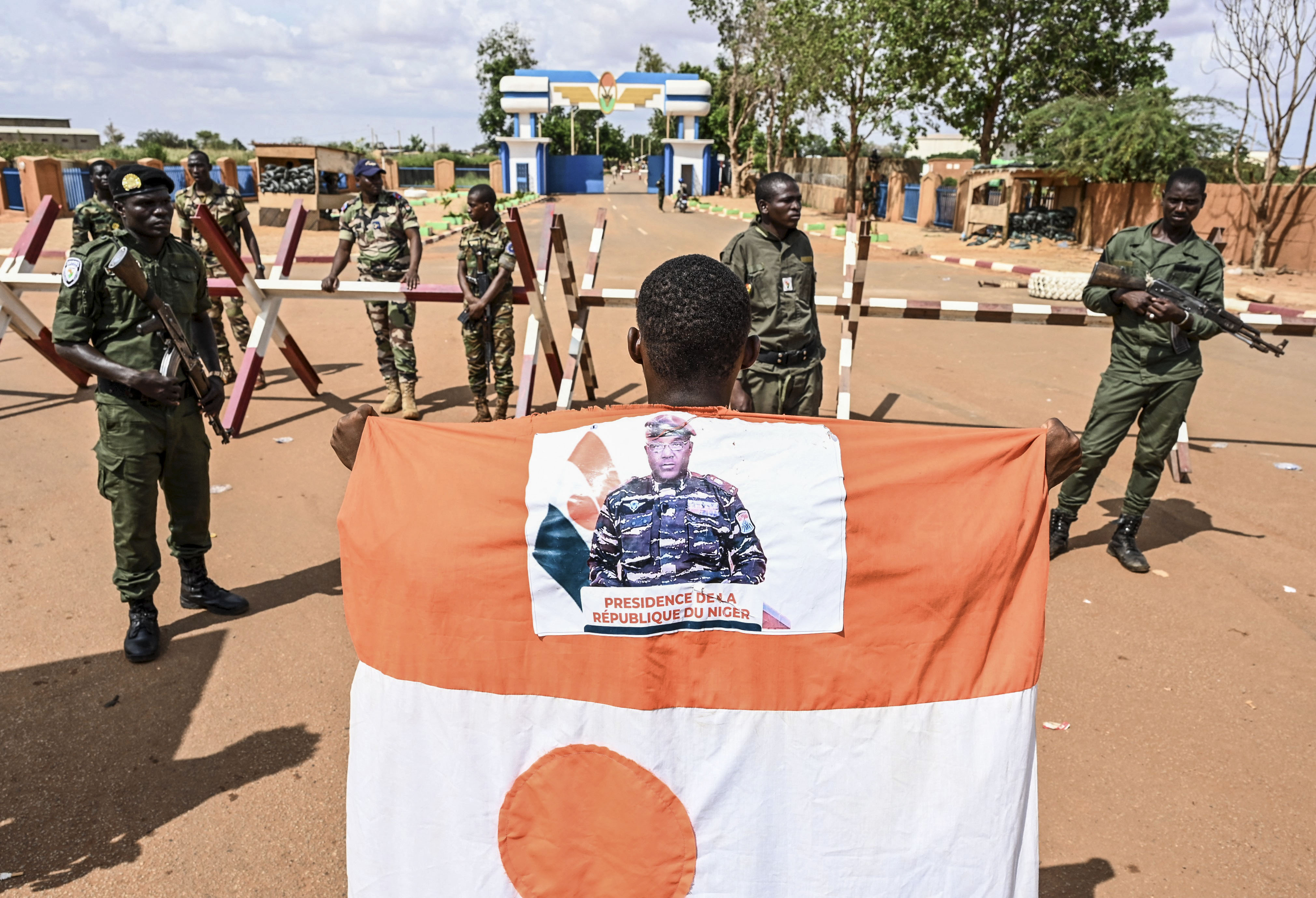
Russian military trainers have arrived in Niger with an air defence system and other equipment as part of the West African nation’s deepening security ties with Moscow, state media reported.
Niger’s military government agreed in January to step up military cooperation with Russia, after expelling French forces that were helping fight armed rebellions in several Sahel nations.
Broadcaster Tele Sahel showed a Russian transport plane arriving at Niamey airport, as it reported late on Thursday that “the latest military equipment and military instructors” from Russia’s Ministry of Defence had landed in the capital.
Russia will help “install an air defence system … to ensure complete control of our airspace”, the report said.
State-run Radio Television du Niger said on its Facebook page that 100 Russian military instructors had arrived in Niamey.
There was no immediate comment from Russia, which has been seeking to boost its influence in Africa, promoting itself as a friendly country without a colonial background on the continent.
‘Global strategic cooperation’
Niger, one of the world’s poorest countries, had been a front-line partner of the West in battling armed fighters in the Sahel but has turned to Russia since a coup last July overthrew elected President Mohamed Bazoum.
In March, Niger decided to revoke its military accord with the United States that had allowed Pentagon personnel to operate on its soil from two bases, including a drone base it built at a cost of more than $100m.
The US still maintains about 1,000 soldiers in Niger, but their movements have been limited since the coup.
The head of the military government, General Abdourahamane Tchiani, spoke by telephone with Russian President Vladimir Putin in March to discuss “global strategic cooperation” against “current threats”, authorities said at the time, without elaborating.
Niger has joined neighbours Mali and Burkina Faso – also ruled by military leaders after coups – to create a joint force to battle long-running armed rebellions.
Violence in the region has worsened since the coups, the instability exacerbating a humanitarian crisis in the region bordering the Sahara desert. As of March, more than three million people were displaced there, the International Organization of Migration said this week.







